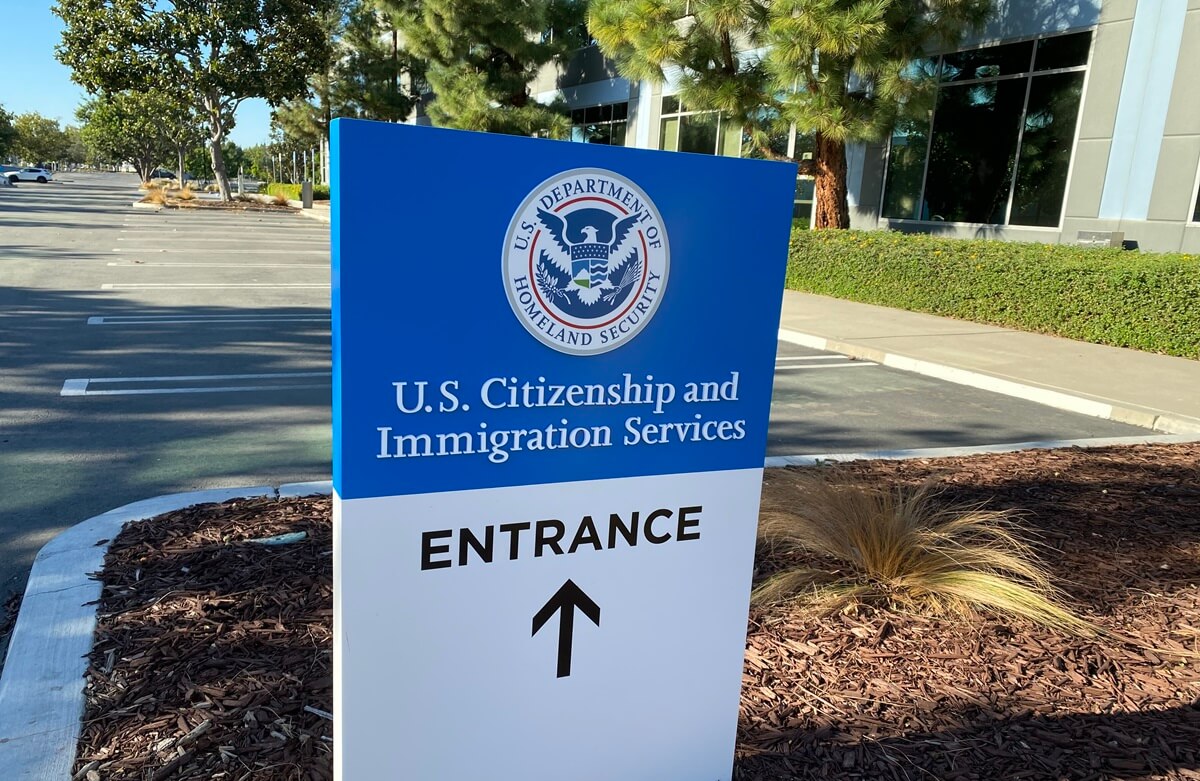
The wait to be reunited with a spouse can feel like an eternity for families going through the U.S. immigration process. The separation creates emotional, financial, and logistical stress for many, driving them to seek ways to expedite their spouse’s green card. Fortunately, while the U.S. Citizenship and Immigration Services (USCIS) generally processes applications in the order received, there are a few strategies that might help speed up the process when necessary.
Marriage-Based Applications Benefit from Strong Preparation
Request a Case Status Update for Slow Processing Times
5 Ways to Expedite Your Spouse's Green Card
Marriage-Based Applications Benefit from Strong Preparation
Based on the thousands of marriage-based green card applications we've seen, there is no substitute for strong preparation before filing. Couples who submit a complete, organized, and well-documented petition have the quickest processing times. When strong evidence accompanies a case, it's also easier for immigration officials to approve cases without extra review.
One of the most common reasons for delays in the green card process is incomplete or incorrect paperwork. Missing forms, incorrect information, or insufficient supporting documents can significantly slow down your spouse’s application. Requests for Evidence (RFEs) from USCIS can extend your wait time by months.
The best way to avoid delays is to ensure that every document and form submitted is accurate and complete. Double-check your I-130 petition, supporting evidence, and any additional forms. If you’re unsure about the process, consider using a document preparation service like CitizenPath to help you submit a complete and accurate application.
Request a Case Status Update for Slow Processing Times
Before you expedite your spouse's green card due to the long processing wait, make sure you're actually outside of the normal USCIS processing times. Further down the same page, you may type in your priority date. The USCIS website will indicate if you're within normal processing times. If your application or petition has been pending longer than the processing time posted, you may generally submit a case inquiry.
To inquiry about a case that is outside normal processing times, you'll need to provide information such as the receipt number, priority date, and other personal information regarding your particular form. USCIS will generally respond with more information within a couple of weeks.
This doesn't necessarily mean that USCIS will expedite the case. You also may have an urgent situation that isn't addressed by the normal processing time. If you still need to expedite your spouse's green card, there are some options.
5 Ways to Expedite Your Spouse's Green Card
There are at least five potential ways to expedite your spouse’s green card and help alleviate the anxiety of the waiting period. We’ll walk you through the different options, how to qualify, and what to expect.
Submit a Request for Expedited Processing
In special circumstances, USCIS allows applicants to request expedited processing of their petition. However, this option is only available under very specific conditions. USCIS is quite strict about which cases qualify, but if you meet the criteria, it can be an effective way to reduce the wait.
USCIS typically approves expedited processing requests when there is:
- Severe financial loss to a company or individual
- Emergencies or urgent humanitarian reasons
- Nonprofit organizations with urgent cultural or social interests
- U.S. government interests, such as national security matters
- An error caused by USCIS
To request expedited processing, you’ll need to contact USCIS directly through their customer service number at 1-800-375-5283. Be prepared to submit supporting documentation to demonstrate that your situation meets the qualifications.
Key Tip: Keep in mind that USCIS won’t expedite requests based on convenience or standard emotional hardships, so ensure your situation falls within their guidelines.
Upgrade to Premium Processing (When Applicable)
For certain types of visa petitions, USCIS offers a premium processing service. This service ensures that your application is reviewed within 15 calendar days for an additional fee. Unfortunately, this option is not available for family-based green card petitions, but it is worth mentioning for those petitioning in other categories (such as employment-based petitions).
If your spouse is already in the U.S. under a temporary work or student visa, there’s a possibility they could qualify for premium processing in other categories of their immigration process.
Key Tip: Double-check if any part of your spouse’s immigration journey qualifies for premium processing by reviewing USCIS guidelines or speaking with an immigration attorney.
Leverage Congressional Assistance
Many people are unaware that their local congressional representative can advocate for them during the immigration process. While this isn’t a guarantee of faster service, it can sometimes apply additional pressure or shed light on your case.
By contacting your representative and explaining the urgency of your situation, they may choose to step in by reaching out to USCIS or even requesting status updates on your behalf. The representative’s office will generally be more accommodating in cases where there is a clear emergency or delay. These situations also have the most potential for success.
Look up your representative on the House of Representatives website and contact their office. Many representatives have a dedicated immigration liaison who can assist you in submitting your request.
Key Tip: Although this isn’t a guaranteed way to expedite your case, representatives can play a significant role in communicating with USCIS and pushing cases forward in some instances.
Consider Humanitarian Parole
In some cases, if your spouse is outside the United States and facing extreme hardship, you may be able to bring them into the U.S. temporarily using humanitarian parole. This is a temporary solution and does not grant permanent residency (a green card) but can reunite families in urgent situations.
Humanitarian parole is typically reserved for extreme cases, such as life-threatening medical conditions or urgent family matters that would significantly impact the individual or family if left separated.
Humanitarian parole applications can be submitted directly to USCIS. They are complex and typically require legal assistance, but if your situation is critical, this can be a lifeline for reuniting with your spouse.
Key Tip: If your spouse is experiencing a serious humanitarian issue, speak with an immigration attorney who specializes in humanitarian cases to explore this option.
Prepare for the National Visa Center (NVC) Stage Early
Preparing for the National Visa Center (NVC) stage of immigrant visa processing can save valuable time and prevent delays in your spouse’s green card application. Once USCIS approves your petition, the case moves to the NVC, where you’ll need to submit several key documents before the case is sent to the U.S. embassy or consulate for an interview. Having these documents ready in advance ensures that you can respond quickly and move your case forward without unnecessary wait times.
Here are the documents you can gather or prepare:
- Affidavit of Support (Form I-864): You'll need to have your IRS income tax returns filed for the last three years. If you haven't done this, you'll save a lot of time by getting them done now. Then, determine if your income and resources are sufficient to sponsor your spouse. If not, find a joint sponsor.
- Civil documents: Generally, the embassy or consulate will accept copies of civil documents. But we always recommend the beneficiary hand carries an original birth certificate, marriage certificates, and police clearance records when possible. This could clear up a discrepancy and avoid delays.
- Passport copies: Ensure the beneficiary’s passport is valid for at least six months beyond their intended entry to the U.S.
- Vaccinations: The beneficiary generally cannot attend the medical exam until directed by the embassy or consulate. However, you can make sure that immigration-required vaccinations are done early.
Key Tip: Gathering these documents ahead of time ensures a smoother NVC process, reducing the overall wait time for your spouse’s visa.
Final Thoughts: Stay Proactive and Organized
While waiting for your spouse’s green card can be stressful, taking proactive steps can help you feel more in control of the process. From requesting expedited processing to ensuring your application is error-free, there are ways to improve your chances of a faster outcome.
Remember: While none of these methods guarantee an expedited green card, they can increase the likelihood that your case gets the attention it deserves. Above all, stay organized, keep copies of all communications, and continue to monitor the status of your case through the USCIS online portal.
By following these steps, you may be able to reduce the wait time and reunite with your spouse sooner.
About CitizenPath
CitizenPath provides simple, affordable, step-by-step guidance through USCIS immigration applications. Individuals, attorneys and non-profits use the service on desktop or mobile device to prepare immigration forms accurately, avoiding costly delays. CitizenPath allows users to try the service for free and provides a 100% money-back guarantee that USCIS will approve the application or petition. We provide support for the Immigrant Visa Petition Package (Form I-130), Affidavit of Support Package (Form I-864), and several other immigration services.
For more tips and guidance on navigating the immigration process, sign up for CitizenPath’s newsletter below. We’re here to help you every step of the way.
Want more immigration tips and how-to information for your family?
Sign up for CitizenPath’s FREE immigration newsletter and
SAVE 10%
on our immigration services






